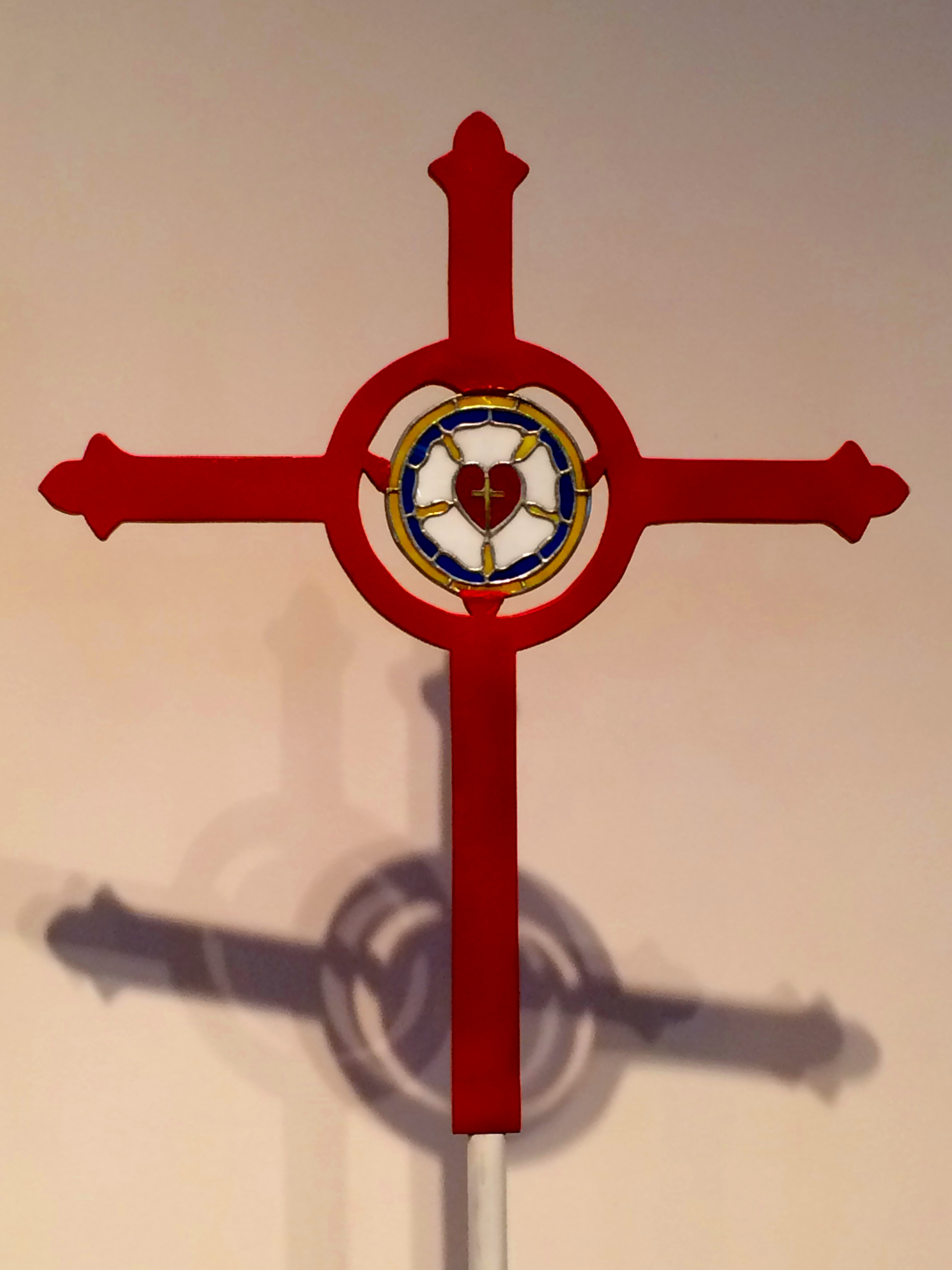Of the Power and Jurisdiction of Bishops
60] [In our Confession and the Apology we have in general recounted what we have had to say concerning ecclesiastical power. For] The Gospel assigns to those who preside over churches the command to teach the Gospel to remit sins, to administer the Sacraments and besides jurisdiction, namely, the command to excommunicate those whose crimes are known, and again to absolve those who repent.
61] And by the confession of all, even of the adversaries, it is clear that this power by divine right is common to all who preside over churches, whether they are called pastors, or elders, or bishops. 62] And accordingly Jerome openly teaches in the apostolic letters that all who preside over churches are both bishops and elders, and cites from Titus 1:5f : For this cause left I thee in Crete, that thou shouldest ordain elders in every city [and afterwards calls these persons bishops]. Then he adds: A bishop must be the husband of one wife. Likewise Peter and John call themselves elders [or priests] 1 Pet. 5:1;2 John 1. And he then adds: But that afterwards one was chosen to be placed over the rest, this was done as a remedy for schism, lest each one by attracting [a congregation here or there] to himself might rend the Church of Christ. For at Alexandria, from Mark the evangelist to the bishops Heracles and Dionysius, the elders always elected one from among themselves, and placed him in a higher station, whom they called bishop; just as an army would make a commander for itself. The deacons, moreover, may elect from among themselves one whom they know to be active, and name him archdeacon. For with the exception of ordination, what does the bishop that the elder does not?
63] Jerome, therefore, teaches that it is by human authority that the grades of bishop and elder or pastor are distinct. And the subject itself declares this, because the power [the office and command] is the same, as he has said above. 64] But one matter afterwards made a distinction between bishops and pastors namely, ordination, because it was [so] arranged that one bishop should ordain ministers in a number of churches.
65] But since by divine authority the grades of bishop and pastor are not diverse, it is manifest that ordination administered by a pastor in his own church is valid by divine law [if a pastor in his own church ordains certain suitable persons to the ministry, such ordination is, according to divine law, undoubtedly effective and right].
66] Therefore, when the regular bishops become enemies of the Church, or are unwilling to administer ordination, the churches retain their own right. [Because the regular bishops persecute the Gospel and refuse to ordain suitable persons, every church has in this case full authority to ordain its own ministers.]
67] For wherever the Church is, there is the authority [command] to administer the Gospel. Therefore it is necessary for the Church to retain the authority to call, elect, and ordain ministers. And this authority is a gift which in reality is given to the Church, which no human power can wrest from the Church, as Paul also testifies to the Ephesians when he says, Eph 4:8: He ascended, He gave gifts to men. And he enumerates among the gifts specially belonging to the Church pastors and teachers, and adds that such are given for the ministry, for the edifying of the body of Christ. Hence, wherever there is a true church, the right to elect and ordain ministers necessarily exists. Just as in a case of necessity even a layman absolves, and becomes the minister and pastor of another; as Augustine narrates the story of two Christians in a ship, one of whom baptized the catechumen, who after Baptism then absolved the baptizer.
68] Here belong the statements of Christ which testify that the keys have been given to the Church, and not merely to certain persons, Matt. 18:20: Where two or three are gathered together in My name, etc.
69] Lastly, the statement of Peter also confirms this, 1 Pet. 2:9: Ye are a royal priesthood. These words pertain to the true Church, which certainly has the right to elect and ordain ministers since it alone has the priesthood.
70] And this also a most common custom of the Church testifies. For formerly the people elected pastors and bishops. Then came a bishop, either of that church or a neighboring one, who confirmed tho one elected by the laying on of hands; and ordination was nothing else than such a ratification. 71] Afterwards new ceremonies were added, many of which Dionysius describes. But he is a recent and fictitious author, whoever he may be [this book of Dionysius is a new fiction under a false title], just as the writings of Clement also are spurious [have a false title and have been manufactured by a wicked scoundrel long after Clement]. Then more modern writers added [that the bishop said to those whom he was ordaining]: I give thee the power to sacrifice for the living and the dead. But not even this is in Dionysius.
72] From all these things it is clear that the Church retains the right to elect and ordain ministers. And the wickedness and tyranny of bishops afford cause for schism and discord [therefore, if the bishops either are heretics, or will not ordain suitable persons, the churches are in duty bound before God, according to divine law, to ordain for themselves pastors and ministers. Even though this be now called an irregularity or schism, it should be known that the godless doctrine and tyranny of the bishops is chargeable with it], because Paul, Gal. 1:7f , enjoins that bishops who teach and defend a godless doctrine and godless services should be regarded as accursed.
73] We have spoken of ordination, which alone, as Jerome says, distinguished bishops from other elders. Therefore there is need of no discussion concerning the other duties of bishops. Nor is it indeed necessary to speak of confirmation, nor of the consecration of bells [nor other tomfoolery of this kind], which are almost the only things which they have retained. Something must be said concerning jurisdiction.
74] It is certain that the common jurisdiction of excommunicating those guilty of manifest crimes belongs to all pastors. This they have tyrannically transferred to themselves alone, and have applied it to the acquisition of gain. For it is certain that the officials, as they are called employed a license not to be tolerated and either on account of avarice or because of other wanton desires tormented men and excommunicated them without any due process of law. But what tyranny is it for the officials in the states to have arbitrary power to condemn and excommunicate men without due process of law! 75] And in what kind of affairs did they abuse this power? Indeed, not in punishing true offenses, but in regard to the violation of fasts or festivals, or like trifles! Only, they sometimes punished adulteries; and in this matter they often vexed [abused and defamed] innocent and honorable men. Besides, since this is a most grievous offense, nobody certainly is to be condemned without due process of law.
76] Since, therefore, bishops have tyrannically transferred this jurisdiction to themselves alone, and have basely abused it, there is no need, because of this jurisdiction, to obey bishops. But since there are just reasons why we do not obey, it is right also to restore this jurisdiction to godly pastors [to whom, by Christ’s command, it belongs], and to see to it that it is legitimately exercised for the reformation of morals and the glory of God.
77] There remains the jurisdiction in those cases which, according to canonical law, pertain to the ecclesiastical court, as they call it, and especially in cases of matrimony. This, too, the bishops have only by human right, and that, not a very old one, as appears from the Codex and Novellae of Justinian that decisions concerning marriage at that time belonged to the magistrates. And by divine right worldly magistrates are compelled to make these decisions if the bishops [judge unjustly or] are negligent. The canons also concede the same. Therefore, also on account of this jurisdiction it is not necessary to obey bishops. 78] And, indeed, since they have framed certain unjust laws concerning marriages, and observe them in their courts, there is need also for this reason to establish other courts. For the traditions concerning spiritual relationship [the prohibition of marriage between sponsors] are unjust. Unjust also is the tradition which forbids an innocent person to marry after divorce. Unjust also is the law which in general approves all clandestine and underhanded betrothals in violation of the right of parents. Unjust also is the law concerning the celibacy of priests. There are also other snares of consciences in their laws, to recite all of which is of no profit. It is sufficient to have recited this, that there are many unjust laws of the Pope concerning matrimonial subjects on account of which the magistrates ought to establish other courts.
79] Since, therefore, the bishops, who are devoted to the Pope, defend godless doctrine and godless services, and do not ordain godly teachers, yea, aid the cruelty of the Pope, and, besides, have wrested the jurisdiction from pastors, and exercise it only tyrannically [for their own profit]; and lastly, since in matrimonial cases they observe many unjust laws, there are reasons sufficiently numerous and necessary why the churches should not recognize these as bishops.
80] But they themselves should remember that riches [estates and revenues] have been given to bishops as alms for the administration and advantage of the churches [that they may serve the Church, and perform their office the more efficiently], as the rule says: The benefice is given because of the office. Therefore they cannot with a good conscience possess these alms, and meanwhile defraud the Church, which has need of these means for supporting ministers, and aiding studies [educating learned men], and caring for the poor and establishing courts, especially matrimonial. 81] For so great is the variety and extent of matrimonial controversies that there is need of a special tribunal for these, and for establishing this, the endowments of the Church are needed. 82] Peter predicted, 2 Pet. 2:13, that there would be godless bishops, who would abuse the alms of the Church for luxury and neglect the ministry. Therefore [since the Holy Spirit in that connection utters dire threats] let those who defraud the Church know that they will pay God the penalty for this crime.


